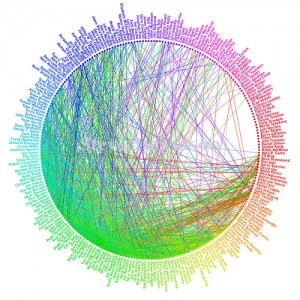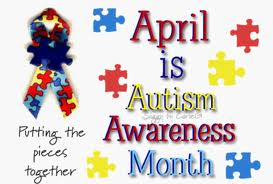This year, I will be running for autism for the fifth time as I take part in the Scotiabank Toronto Waterfront Half-Marathon. Although the race is advertised as “flat, fast and festive”, it is quite hard, and not only because it’s kind of far. It’s because there are long straight stretches with no left or right turns. In the last 5km or so, I keep imagining that the final turn to the finish line is right there, like a mirage in the desert.
This year, I expect the race to be even harder, because it will come just a month after I do the Ottawa Army Run, which is also a half-marathon.
The Scotiabank run is an important one, though, and I will never exclude it from my race calendar no matter what else I have going on. This race is my opportunity to give something to the autism community, to make the world a better and brighter place for my son and other people like him.
I am running for the Geneva Centre for Autism, and like last year, I have set myself a fundraising goal of $1000. If I achieve that goal, the Geneva Centre will be able to choose from some really cool uses of the money. Like these:
1. Art supplies for 40 individuals with autism. We could collectively unleash the talent of the next Stephen Wiltshire.
2. Sports equipment for 20 individuals with autism. Sporting activity has so many benefits for people with autism, apart from the obvious ones that apply to all of us. Athletics can help develop fine and gross motor skills, it can nurture problem-solving skills, and it give kids the “deep pressure” sensations that they often crave.
3. Instruments for 15 musicians with autism. I have had the pleasure of listening to the music of Michael Moon. Music enriches his own soul and those of his audiences. If he hadn’t had access to a guitar when he was younger, that potential within him might never have been unlocked.
4. Job training for 15 young adults. The biggest worry in the minds of most autism parents is whether their kids will be OK as adults. Will they have the life skills they need to live independently and have jobs? The job training programs provided by the Geneva Centre can make a real difference to the lives of young adults.
5. Field trips for 10 individuals with autism. For most kids, field trips are an opportunity to go somewhere fun and miss a few hours of school. For kids with autism, field trips are an opportunity to learn life skills in real-world settings, and to generalize existing skills to places other than the classroom.
6. Summer camp for 4 individuals with autism. People with autism are often unable to participate in activities that are designed for the neurotypical world. There is, however, an opportunity for them to attend camps for special needs people, or to attend the regular camps with extra support.
7. 2 iPads loaded with autism-friendly apps. It has been shown time and time again that kids with autism can benefit greatly from using iPads. They can learn life skills, social skills, academics like reading and math that can be hard to master in a classroom setting. There have been reports of kids with autism who have gone from non-verbal to fully conversational with the help of iPad apps.
8. One piece of state-of-the-art sensory equipment. A lot of kids with autism are sensory-seekers. They like deep pressure, textures, movement, sounds and patterns. One piece of equipment that meets sensory needs can go a long way in centres that accommodate groups of children.
Every cent that I can raise will make a lasting difference to the life of someone with autism. Whether we help kids discover a talent or a passion, prepare them for life, or simply make it easier for them to tolerate their environment, we have the power to change the world.
It takes a village to raise a child. It takes a village of extraordinary people to raise a child with autism. If you are able to, please be a part of my village.
To sponsor my 2013 Run for Autism, please visit my fundraising page.
(Photo credit: Kirsten Doyle. This is an original post by Kirsten Doyle.)












